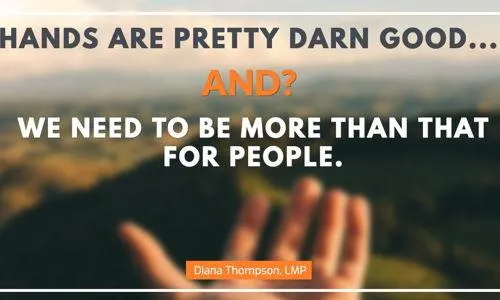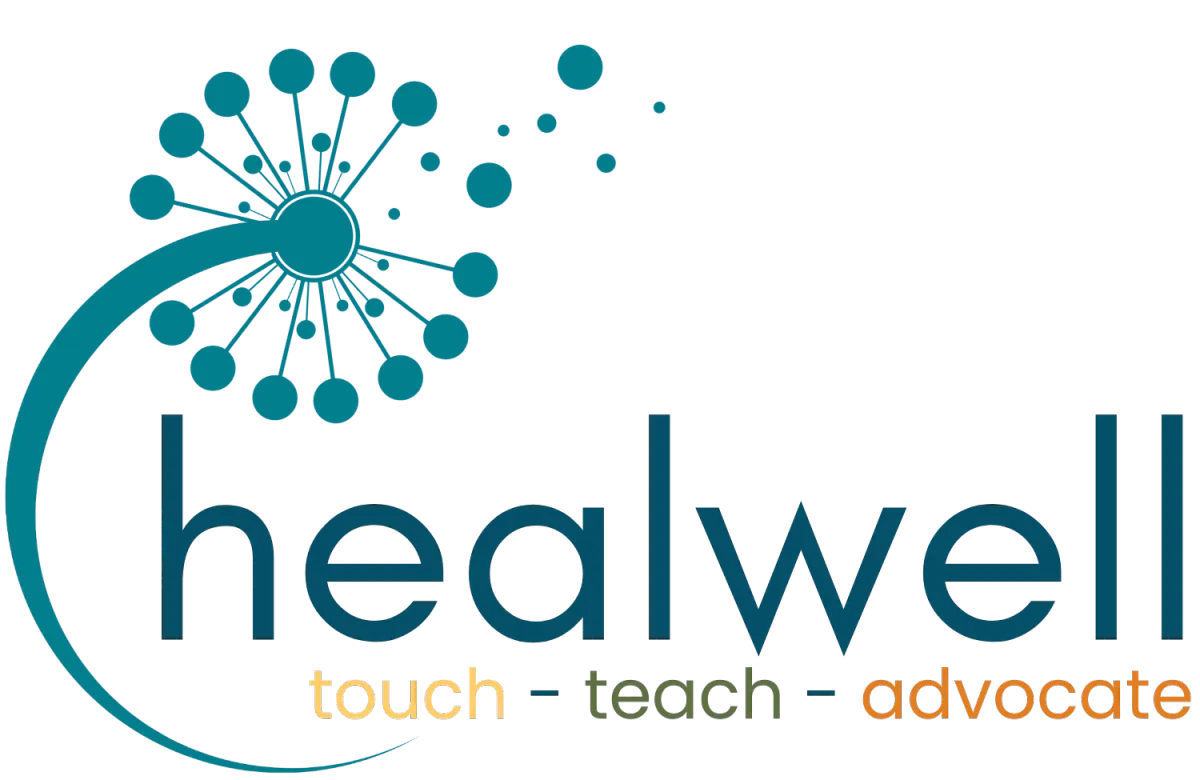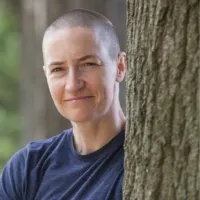Our Blog

Your Hands Are Great. Who Cares?
On Sunday, June 16th Healwell had the distinct pleasure of hosting Diana Thompson, LMP in Episode 10 (Multidisciplinary Approaches to Managing Pain) of our 12-month, Interdisciplinary Clan of Mystery webinar series. Diana has been deeply invested in the elevation of the practice of massage therapy for decades. She shared truly common sense and achievable perspectives to address some of the issues we allow to stymie our profession, but my favorite thing she said the whole hour was,
“Hands are pretty damn good…and? We [massage therapists] need to be more than that for people.”
I couldn’t agree more. As a massage therapist and as the Executive Director of Healwell I work every day to create meaningful opportunities for integration of massage therapy, but more importantly, massage therapists. Most people on the planet have hands and most people on the planet are not massage therapists. Our hands do not make us uniquely able to facilitate healing. When a person seeks out the services of a massage therapist, they want more than hands.
What would happen if our profession issued a nationwide moratorium on technique courses for, say, the next 3 years?
What if as a practicing massage therapist, you would not be able to satisfy your continuing education requirement for license renewal with hands-on technique courses? What if you had to attend no less than 24 hours of training in skills like listening, curious inquiry, clinical reasoning, empathy, and interdisciplinary awareness and collaboration? What if you were required to take a course or two, at a local nursing school or through a physical therapy program, in how the body actually works? Let’s face it: many of us did not learn the true science of the body in the strictest sense in massage school.
When I speak at conferences, I talk about how this kind of transformation of our profession will be a “heavy lift.” The heavy lift is not in the learning; it’s in convincing an army of massage therapists that they might be missing the most important skills to make their work truly welcome and meaningful.
Our profession is not better off when 360,000 practitioners continue to clamber after “certifications” and “mastery” of copyrighted versions of touching.
If our profession is going to put its adult pants on and show up to the world as healthcare providers, our work is not in technique. There is no “advanced practice” without the so-called “soft skills” of ethical communication, adherence to scope, interdisciplinary respect and collaboration and self-awareness.
If you touch humans for a living, stop teaching your hands fancy tricks and start teaching your mouth to wait, your brain to engage, and your “fixer” to slow its roll. Become curious and humble and truly invested in the human experience and responsible communication. Get to know yourself and get real about what you think you’re doing.
The survival and very relevance of our profession depend upon this shift.
Connect With Us:

Contact Us:
4201 Wilson Blvd. #110-341
Arlington, VA 22203
